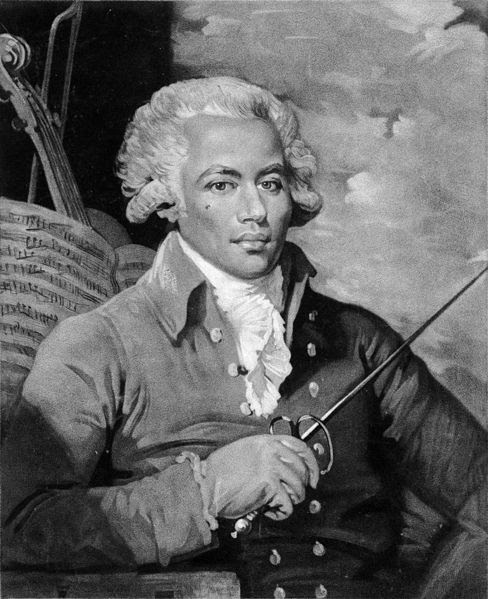
Source: Wikimedia Commons
Classical music is chock full of virtuosos and prodigies. Oftentimes, only three composers are discussed during this period: Haydn, Mozart, and Beethoven. While all three of these composers are remarkable and virtuosic, they aren’t the only prodigious musicians at this time. Joseph Bologne, Chevalier de Saint-Georges was another composer that could be considered to be of the same caliber as the other three renowned Classical composers. Yet, this Black composer is often forgotten.
Bologne was born on Christmas Day in 1745. He was born with a commoner for a father and a slave for a mother. His father eventually was able to acquire the title of Gentleman of the King’s Chamber, however, this was a title that couldn’t be inherited by Bologne. Bologne was the illegitimate son to his father and he was subject to Code Noir laws, laws that made Black French people second class citizens to Whites. However, this didn’t stop Bologne from attending Académie royale polytechnique des armes et de l’équitation. While attending here, Bologne became an acclaimed fencer, earning the respect of his father. It also earned him the position of Officer of the King’s Bodyguard and the rank of Chevalier.
It is thought that Joseph Bologne began his musical training at a young age, although there is no documentation to prove this. This assumption is largely drawn off of his skill as a composer and as a violinist. The first records of Bologne as a musician are found in 1764 when Antione Looli composed two violin concertos specifically for Bologne. Later in 1769, Bologne started to play in Gossec’s orchestra Le Concert des Amateurs, later becoming its concertmaster in 1763.
As the French Revolution got underway, Bologne decided to focus less on music. On August 26, 1791 equal rights were granted to all French citizens. Because of this, Bologne decided to join the revolutionary army and eventually lead France’s first all-Black regiment. He was later dismissed from the army and imprisoned for activities that were not revolution-related. Specifically, he was punished for his involvement in music outside of the army.
Over the course of his career, he wrote six operas, two symphony, 14 violin concertos, eight symphony-concertantes, three violin sonatas, one sonata for flute and harp, one bassoon concerto, a clarinet concerto, six violin duets, and a number of other songs that aren’t fully documented.